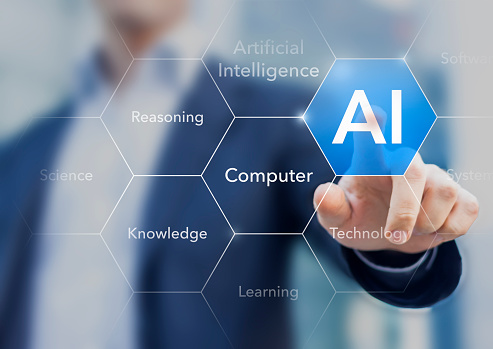Artificial intelligence is no longer the stuff of science fiction; it’s quite real, and is actively transforming our lives! Cars are AI’s next frontier, where it will give dealerships and drivers both opportunities and challenges, including:
Customer Communications
Thanks to the development of chatbots and other interactive technologies, dealerships’ computer systems can communicate with their clients on a growing range of complex topics. Automated service representatives are becoming increasingly sophisticated, to the point that the clients often cannot tell the difference between a chatbot and an individual employee. Dealerships will thus be able to automate a growing range of customer service functions, freeing their staff up to work on creative tasks. Because the frequency and length of public service requests are so difficult to predict, this development will also make it easier for dealerships to manage their time.

Safe Service
On the driver’s end, artificial intelligence may play a dominant role in reducing bad car habits and improving road safety. AI vehicle assistants will be able to perform a range of functions for drivers, including taking their calls, sending text messages, and linking to their smartphone apps. Drivers can thus stay connected with the outside world without ever taking their hands or eyes off the wheel. This increased safety, however, may be mitigated by the fact that drivers will have more distractions, causing them to pay less attention to the road even if they don’t take their eyes off it. AI assistants will need the proper programming to warn drivers of dangers and encourage them to focus on driving.
Connection Challenges
The success of AI relies on cars’ having clear connections to the Internet. Dealerships will thus have to provide the infrastructure for easy remote Internet access, investing in fiber optic cables, new network switches, and other crucial technologies. This investment is likely to carry ongoing commitments. As more and more drivers purchase AI cars and drivers’ demands become increasingly complex, dealerships will have to expand their range and processing power. The most successful companies will be those that adopt this infrastructure early and make regular updates, meeting their customers’ growing needs at every opportunity.
Cybersecurity Challenges
As with any endeavor to increase online connectivity, artificial intelligence in cars will create new cybersecurity risks. AI records will gather data on where drivers go, how they get there, what music and radio programs they listen to, and a variety of other details. Hackers could easily use this information to undermine privacy, target sensitive individuals or institutions, or exploit people’s finances. Drivers will have to develop new habits to use their AI safely. Dealerships must also play a role, installing state-of-the-art security software in their vehicles and giving their customers tips on how to avoid online threats.
To learn more, call (403) 457-1478 or contact us at info@ctechgroup.net today.

My passion is to make my mark on the world in a positive and lasting way. I want to set an example for my son that his father can compete with integrity in today’s world, be very successful, and leave the world a better place for him.
Combining my technical/business-based education with a long career steadily progressing up the corporate ladder, I decided to build a company that held true to my values. So, I founded and designed the next generation of IT support firm: CTECH Consulting Group Inc. We are a completely automated, cloud-based IT company designed to compete against any other IT firm without the overhead. We promote a lifestyle to all our staff where they can work anywhere, at any time, access any information on any device that is relevant to their job, and collaborate with anyone they want to.

